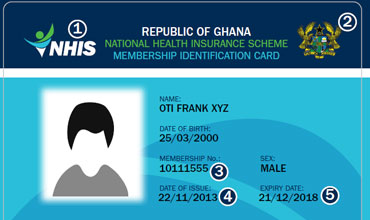Public Awareness of the National Health Insurance Scheme (NHIS) among Patients accessing Healthcare in Supreme Faith Hospital, Ado-Ekiti, Nigeria

Abstract:
Objective
- To determine the public awareness of the National Health Insurance Scheme
(NHIS) among patients accessing health care in Supreme Faith Hospital,
Ado-Ekiti, Nigeria.
Study
design and Setting - A cross-sectional study design that made use of
quantitative survey method involving data collection and analysis.
Participants -
120 voluntary adults who access health care services at Supreme Faith Hospital,
Ado-Ekiti, Nigeria.
Method -
Results –
The study revealed that a greater number of respondents i.e. 82 (68.3%) were
aware of the existence of the National Health Insurance Scheme (NHIS) but only
38(31.7%) were enrolees in a hospital setting which is accredited to providing
health care services under NHIS. There were more females (64.2%) than males
(35.8%) among the respondents. A greater number of respondents were educated;
Secondary (36.7%) and Tertiary education (48.3%), while Primary education
(8.0%) and none/others (10.0%) were much lesser. There was weak statistical significant
finding between education and awareness of NHIS (p=0.045).
Conclusions –
The awareness of NHIS was high among patients who were accessing health care
services in an accredited facility in Nigeria. However, the number of enrolees
among them was much lesser than expected. It is recommended that effort should
be geared towards improving the rate of enrolment process, especially in the
face of the heavy burden of out-of-payment expenditure in health care.
Keywords:
Enrolee, Healthcare, Health insurance, Nigeria, Out-of-pocket payment, Services.
References:
[1.]
Araoye, M. (2003) Research Methodology
with statistics for Health and Social Sciences. Ilorin: Nathadex publishers.
[2.]
Awosika, L. (2005) Health Insurance and
Managed care in Nigeria, [Online]. Available from: http://indexmedicus.afro.who.int/iah/fulltext/health%20insurance.pdf
(Accessed: 8 April 2014).
[3.]
Ghana National Health Insurance Scheme
(2010) National Health Insurance Scheme (NHIS) joint learning network,
[Online]. Available at:
http://jointlearningnetwork.org/content/national-health-insurance
(Accessed: 30 March 2014).
[4.]
National Health Insurance Scheme (2014)
NHIS guidelines and benefit package, [Online]. Available at: http://nhis.gov.ng
(Accessed: 1 April 2014).
[5.]
Omosehin, O., Odeyemi, K. A., Onajole,
A. T. and Ogunnowo, B. E. (2006) Awareness and acceptance of the National
Health Insurance Scheme among Health care providers in Urban local governments
in Lagos State, Journal of Clinical
Sciences,vol.6,No.1
[6.]
Pacific Prime (2014) Liberia Health
Insurance, [Online]. Available at:
http://www.pacificprime.com/country/africa/liberia-health-insurance-pacific-prime-international/
(Accessed: 30 March 2014).
[7.] Sabouhi,
F., Babaee, S., Naji, H., and Zadeh, H. (2011) Knowledge, awareness, attitudes and practice about hypertension in
hypertensive patients referring to public health care centers in Khoor &
Biabanak , Iran
J Nurs Midwifery Res. 2011 Winter; 16(1): 34–40. [Online]. Available at: http://www.ncbi.nlm.nih.gov/pmc/articles/PMC3203297/
(Accessed: 13 April 2014).
[8.] Sanusi, R. A. and Awe, A. T. (2009) Perception of National Health
Insurance Scheme (NHIS) by Health care consumers in Oyo State, Nigeria,
Pakistan Journal of Social Sciences, Vol.6,issue1,pp48-53.
[9.]
Spaan, E., Mathijssen, J., Tromp, N.,
McBain, F., Have, A., and Baltussen (2012) the impact of health insurance in
Africa and Asia: a systematic review. Bulletin of the World Health Organisation
2012; 90:685-692.doi:10,2471/BLT.12.102301.
[10.] Texila
American University (2014) Lecture notes on Health Economics. Online; Available
at: Texila American University Online Education LMS (Accessed: 24 February
2014).
[11.] World
Health Organisation (2010) World health report 2010, Health systems financing
the path to universal coverage. Geneva: WHO.

